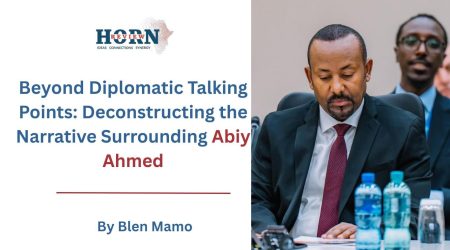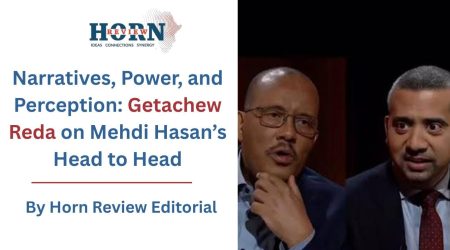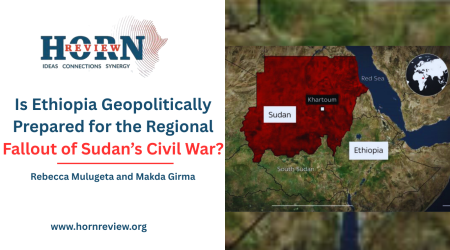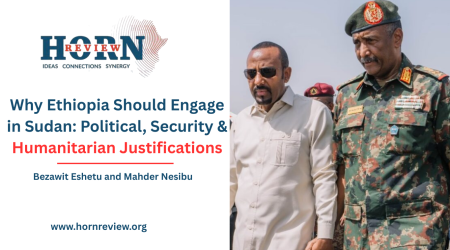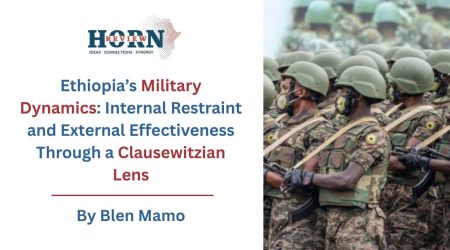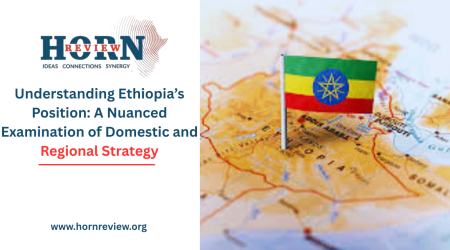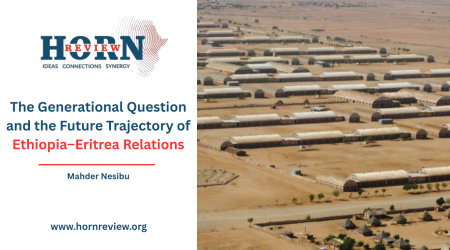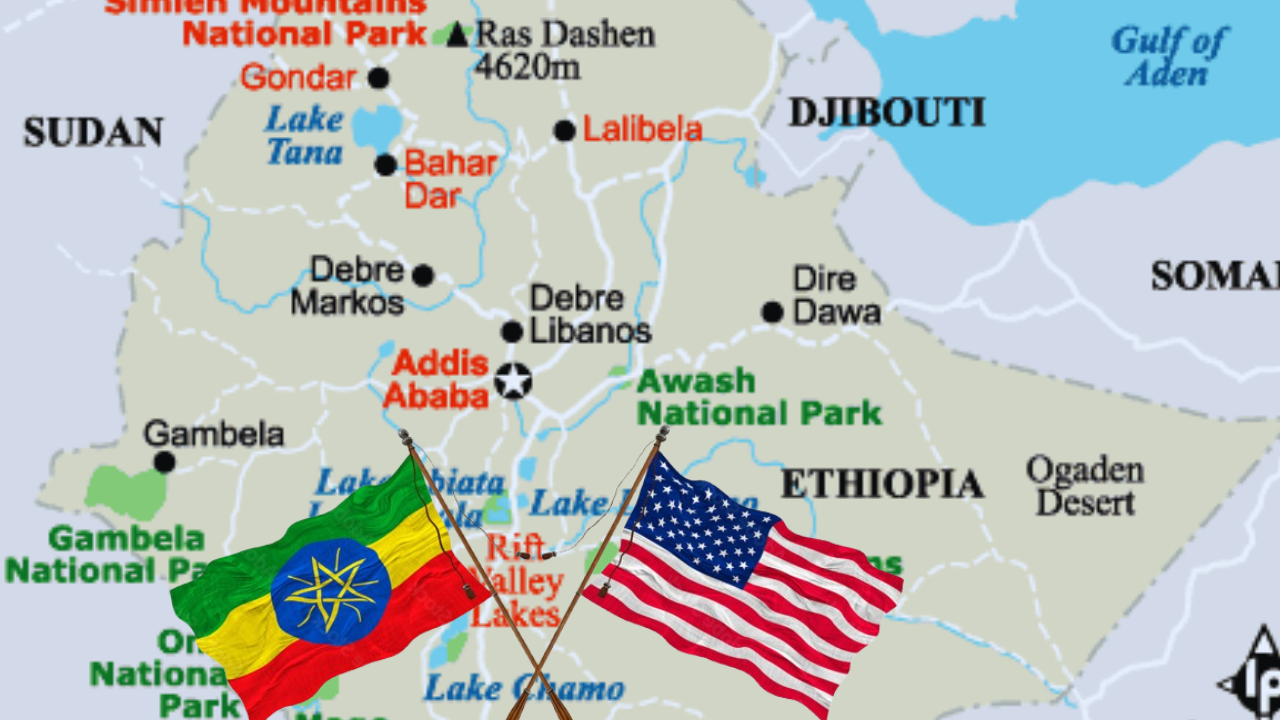
31
May
Post-Camp David Realities: The Case for Elevating Ethiopia as a U.S. Strategic Ally
For nearly five decades, the Camp David Accords of 1978 formed the foundation of a durable strategic triangle between the United States, Israel, and Egypt. In this framework, the U.S. extended expansive military, economic, and diplomatic support to both Israel and Egypt, reinforcing a regional architecture aimed at stabilizing the Middle East. Egypt’s value in this triangle was underscored by its historic peace with Israel, its stewardship of the Suez Canal, its proximity to conflict zones, and its gatekeeping role at the Rafah crossing into Gaza. In return, Egypt received billions in American aid and preferential diplomatic access, anchoring its relevance as a regional mediator and power broker.
However, these once-stalwart alliances are showing signs of erosion. The shift stems not merely from diplomatic fatigue but from a recalibration of U.S. foreign policy under the Trump doctrine – a transactional, interest-driven paradigm that prioritizes economic return and strategic flexibility over historical alliances and ideological alignment.
Donald Trump’s decision to exclude Israel from his Middle East tour – opting instead for visits to Saudi Arabia, Qatar, and the United Arab Emirates – was emblematic of this pivot. Accompanied by multibillion-dollar arms deals and infrastructure partnerships, the visit signaled a departure from security-first diplomacy to deal-centric engagement. Simultaneously, developments such as nuclear negotiations with Iran and ceasefire agreements with the Houthis – both perceived as dismissive of Israeli concerns – reflected growing strategic divergence between Washington and Tel Aviv.
The implications of this drift extend beyond Israel. Egypt, whose geopolitical utility in Washington rested largely on its unique bridge to Israel, now finds itself with diminishing influence. As U.S.–Israel relations recalibrate, so too does the leverage Cairo once wielded by virtue of that bond. This decoupling is compounded by bilateral frictions: the Houthi attacks in the Red Sea have slashed Egypt’s Suez Canal revenues, prompting demands from Washington for free passage – further straining ties. Tensions over the potential relocation of Palestinian civilians to Egypt, along with Cairo’s overtures to China, only add to the growing dissonance.
This shifting geopolitical terrain presents an opening for new actors to emerge – and Ethiopia is uniquely positioned to step into this vacuum.
A longstanding American partner in Africa, Ethiopia occupies a strategic intersection in the Horn of Africa, where counterterrorism, regional diplomacy, and economic development converge. As Egypt’s regional centrality wanes, the United States must look elsewhere for influence in the Eastern Mediterranean and Red Sea corridor. Ethiopia, with its growing regional assertiveness and increasing interest in maritime access, offers Washington a compelling alternative anchor.
Ethiopia’s potential lies not just in geography but in capacity. With 127 million people, it is a demographic and diplomatic heavyweight in Africa. Its leadership of the African Union, history of peacekeeping contributions, and counterterrorism credentials provide a solid foundation for expanded bilateral engagement. As the U.S. increasingly views its global partnerships through the lens of returns—economic, strategic, and symbolic—Ethiopia’s alignment with American priorities becomes ever more advantageous.
The Biden and Trump administrations may differ in tone, but the enduring emphasis on countering Chinese influence in Africa remains constant. Ethiopia, often portrayed as a cornerstone of Beijing’s Belt and Road Initiative, now has the opportunity to recalibrate its external engagements and present itself as a competitive investment destination for American capital.
This could begin with revitalizing Ethiopia’s eligibility under the African Growth and Opportunity Act (AGOA). Reinstatement would not only expand Ethiopia’s access to U.S. markets but also incentivize growth in manufacturing, agriculture, and technology. Increased imports of American-made aircraft, particularly from Boeing, and greater defense cooperation would strengthen the trade partnership while fulfilling key U.S. export goals.
Ethiopia also holds vast reserves of critical minerals such as tantalum, niobium, lithium, and rare earth elements—materials vital for semiconductors, aerospace, and clean energy technologies. As Washington seeks to diversify its supply chains away from China, Ethiopia could emerge as a reliable partner in securing these high-value resources.
On the security front, Ethiopia’s proven counterterrorism capabilities in Somalia and its regional influence make it an ideal ally for Washington’s Horn of Africa strategy. With U.S. military operations targeting al-Shabaab and IS-Somalia, Ethiopia’s on-the-ground presence and operational experience offer vital synergies. Enhanced coordination on Red Sea security and maritime stability could further elevate Ethiopia’s regional role, offering the U.S. a reliable partner in an increasingly contested theater.
To fully capitalize on this geopolitical moment, Ethiopia must embrace a forward-leaning, interest-aligned diplomacy that articulates a clear strategic value proposition to Washington. It must demonstrate not only alignment with U.S. priorities—economic openness, regional stability, and security cooperation—but also the institutional capacity to follow through.
In an era defined by shifting loyalties and transactional diplomacy, traditional alliances no longer command automatic deference. Egypt’s privileged access to Washington, once unassailable, now looks increasingly precarious. In this context, Ethiopia’s ascension from regional partner to strategic ally is not only plausible—it is necessary.
As global alliances are restructured around interest rather than ideology, Ethiopia has the opportunity to redefine its role—not as a passive recipient of Western policy, but as a proactive architect of a new, mutually beneficial partnership. Washington is looking for new pillars of stability and influence across Africa and the Middle East. Ethiopia, if bold and pragmatic, is well-positioned to be one of them.
By Yonas Yizezew,Researcher,Horn Review

